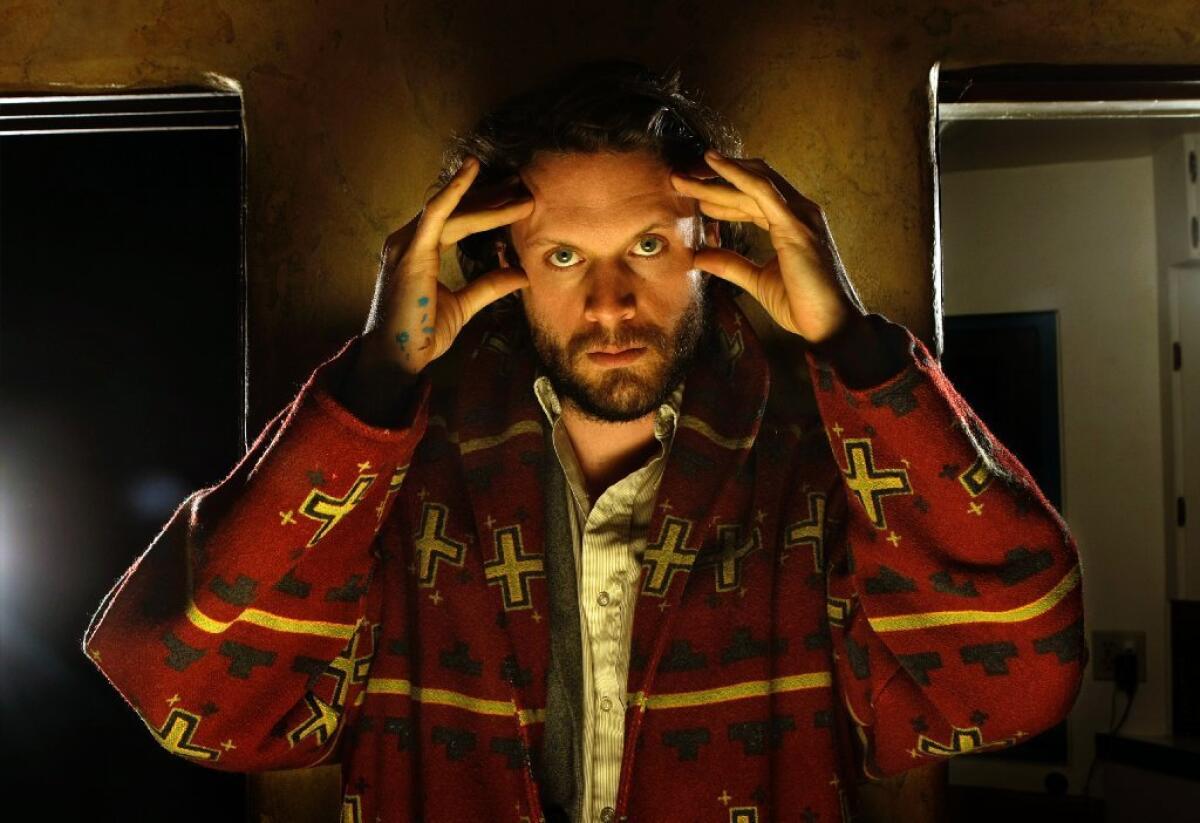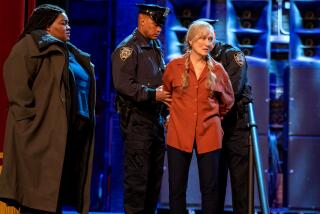Music and ‘True Detective’: A playlist of grim songs score HBO drama

Amid all the talk of HBO’s drama “True Detective,” little has been written about the music, and the way it paints the Louisiana mystery a certain color of brown. From the opening theme, the Handsome Family’s “Far From Any Road,” to the end of each episode, the selections dot the hour with melodic comments, augmenting the drama with new layers of grit. It shouldn’t be surprising that the man behind the choices is T Bone Burnett, whose tastes are as deep as they are ubiquitous.
Given that the show, which stars Woody Harrelson and Matthew McConaughey as detectives searching for a ritualistic murderer, occurs in the south, it stands to reason that music from Lucinda Williams, Steve Earle and Dwight Yoakum might find purchase within the grim tale. Ditto the raw folk music from John Lee Hooker, Blind Uncle Gaspard and C.J. Johnson. Like “Far From Any Road,” they suggest a world filled with darkness that only reluctantly gives way to light.
Equally striking are the less twang-centered selections. Over the six episodes so far, tracks from New York rappers Wu-Tang Clan and Boogie Down Productions have peppered scenes with counterpoint. Louisiana bluesman Slim Harpo, one of the most soothing of the electric blues singers, scores a quiet scene between McConaughey’s character Rust and his partner’s wife in a diner.
RELATED: The Handsome Family scores ‘True Detective’ with death dirge
When Rust enters a biker bar, the raw metal at full volume while roughnecks play pool is by the Melvins: “A History of Bad Men,” from the Los Angeles band’s album “A Senile Animal.” To take matters darker, the bar also plays one of the grand epics of modern-day metal, the stoner rock band Sleep’s “Holy Mountain,” from the album of the same name. (Find me a biker bar that has the Melvins and Sleep on the jukebox and I’m rethinking my lifestyle.)
Equally impressive is the blues dirge that closes one of this season’s most impressive feats -- the six-minute tracking shot at the end of Episode 4. As the camera pulls out to catch the shot from overhead, the howl of Nick Cave’s band Grinderman erupts, blowing through “Honey Bee.” The placement of Captain Beefheart’s “Clear Spot” in another episode is equally inspired. That McConaughey’s character is a fan of avant-jazz-blues-rock iconoclast Beefheart makes me appreciate some of the detective’s more philosophical rants.
During a recent interview with Mother Jones, Burnett explained the Beefheart choice. “He’s alone in a room, and he’s looking at photographs of dead women — what kind of music is he listening to,” he said. “Well, he’s not going to be listening to music about his truck, or music about how tight his jeans are, or music about how much beer he’s had to drink before he gets in the truck. He’s gonna be listening to some Captain Beefheart.” (In a perfect, fictionalized world such as this, perhaps.)
PHOTOS: Unexpected musical collaborations
Sunday’s episode expanded the music even more. A love scene between Harrelson’s character, Marty, and a young woman is soundtracked by Father John Misty’s “Everyman Needs a Companion,” a love song far removed from the treacle that scores most scenes of this sort. (A seduction scene later in the show featured music from avant-garde singer Meredith Monk!)
And for those of us into totally obscure desert guitar music, Emmylou Harris’s rendition of “The Good Book” was a gust of warmth. A song by the late songwriter and guitarist Ranier Ptacek from the excellent tribute album “The Inner Flame,” it’s another buried piece of evidence in the patiently unfolding grimness.
Below is a Spotfiy playlist that captures much of the music.
ALSO:
Beck seeks the ‘most essential, elemental sounds’ in ‘Morning Phase’
The Handsome Family scores HBO’s ‘True Detective’ with death dirge
Hear now: new music by St. Vincent, M. Kiwunuka, Katy B, Neneh Cherry
Twitter: @liledit
More to Read
The biggest entertainment stories
Get our big stories about Hollywood, film, television, music, arts, culture and more right in your inbox as soon as they publish.
You may occasionally receive promotional content from the Los Angeles Times.










